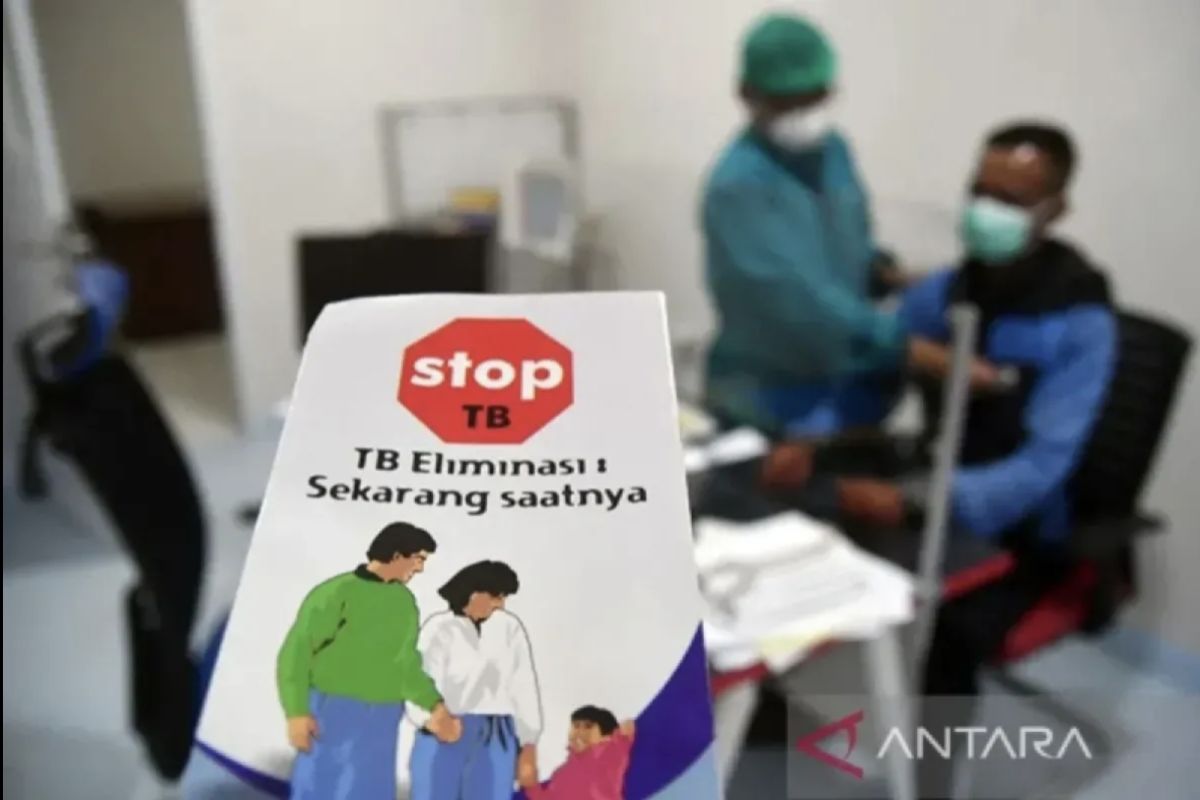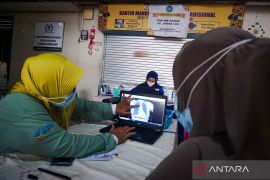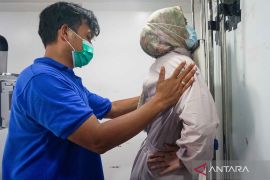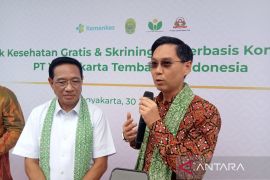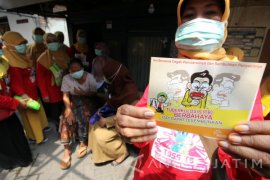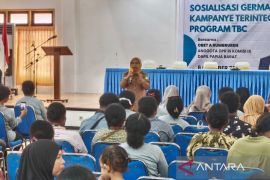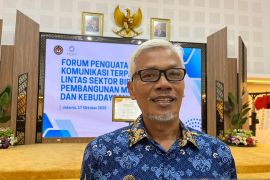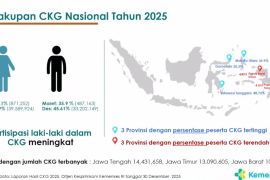To combat Tuberculosis (TB), one of humanity's oldest diseases, the Indonesian government has introduced various strategies to accelerate TB elimination through several stages, aiming for eradication by 2030.
Alongside the government’s initiatives, the community also worked hand-in-hand to help curb the spread of this disease.
For instance, in Jakarta, the community has established a program called TB Alert Village, led by housewives, health cadres, and environmental officials.
They believe that the fight against TB is not solely the responsibility of hospitals and health centers but can begin at each home, in narrow alleys, and through the voices of those who care.
Currently, 274 TB Alert Villages are spread across sub-districts throughout Jakarta.
Housewives involved in the program are specially trained to recognize TB symptoms, educate residents, accompany patients through treatment, and also monitor directly through facilities and infrastructure to ensure medications are taken on schedule.
Every morning, they greet neighbors one by one and slowly start conversations about persistent coughs, prolonged fevers, or decreased appetite.
They walk through narrow alleys, knock on doors of residents' houses, educate, listen to concerns, and encourage patients to stick with the lengthy treatment process.
For TB patients, this support offers a glimpse of hope and psychological support.
“When more people care, more people become aware of the importance of TB prevention and treatment," Sulastri, one of the TBC Alert Village cadres in Kampung Rambutan, stated.
She noted that in some areas, residents still consider TB a disgrace.
However, she believes housewives have a greater influence as familiar, trusted, and close figures to residents. They can reach patients empathically, break through stigma, and connect in ways that officials cannot.
Related news: Minister asks regional heads to priotiritize national health programs
Cross-sector collaboration
Although challenges linger, ranging from stigma to budget constraints, the spirit of collaboration remains strong.
The government has emphasized the importance of collaboration among local governments, communities, and surrounding communities.
Efforts to improve the quality of public health continue to be intensified to achieve the 2030 TB elimination target while reducing the burden of disease caused by TB, with the TB Alert Village program as one of the spearheads.
For thousands of years, TB has been a deadly disease and claimed over one billion lives worldwide.
Every year, TB causes over one million deaths globally—equivalent to two deaths every minute.
In addition, immediate treatment is crucial for TB patients, as delays in taking medication can accelerate TB transmission.
Supervision during treatment is also vital since recovery from TB takes several months and stopping treatment halfway can only worsen the condition.
The East Jakarta City Government has also collaborated in TB control, with Kampung Rambutan recognized as one of the best areas in handling TB through the TB Alert Village initiative.
Clean and healthy lifestyles (PHBS) continue to be promoted through the dissemination of information, community engagement, campaigns, and health outreach.
In addition, the East Jakarta City Government competed for the best sub-district for TB detection in the region.
The competition encouraged sub-districts throughout East Jakarta to identify and treat TB cases among their residents.
A total of 30 tuberculosis cadres have been trained to support TB handling. They not only identify TB cases but also further investigate people with close contact with TB sufferers to break the chain of transmission.
The regional government recorded that 2,645 East Jakarta residents tested positive for TB during the period from January to March 2025.
Of the 2,645 cases, some 324 cases were found in children due to close contact with infected individuals nearby. The areas with the most TB cases in East Jakarta were Pulogadung, Ciracas, Cakung, and Pasar Rebo.
Based on data from the East Jakarta Health Service in 2024, TB treatment success reached 65 percent, or 2,285 residents having recovered.
The office reported that the government's TB control budget reached Rp65.6 billion (US$3.8 million), covering diagnosis, patient monitoring, and supplemental nutrition (PMT) for patients.
An additional Rp9.1 billion (US$535 thousand) from the Global Fund brought total TB funding to Rp74.7 billion (US$4.4 million).
Related news: Tangerang chosen as pilot project for TB handling
The last fortress
Despite available treatment and ongoing government efforts, dedicated individuals are still needed to fight TB.
Several innovations have emerged from the TB Alert Village in Kampung Rambutan, led by a group of housewives called cadres usut sisir (Kusir).
Those cadres made several breakthroughs starting from a digital map of the distribution of cases (Pelana), TB education and information posts (Pedati), TB dropout case screening (Dokar), cross-cluster and sector collaboration (Bentor), and a modified house project (Simodis).
The main innovation lies in the Sidokar act, with five derivative actions, namely TB DO screening entailing tracing TB patients who have stopped taking medication.
The second is the Kusir act wherein cadres screen and educate TB patients.
Third, the Pelana act involves digital mapping of TB case distribution for patient monitoring and determining the level of vulnerability.
Fourth, the Pedati act, a TB education and information center that provides information on health services and TB screening.
Fifth, the Bentor act, a cross-cluster and cross-sector collaboration that involves cross-program collaboration including nutrition assessments to measure noise, lighting, humidity, and nutritional status checks.
Each party has a specific role in the innovation.
Hamlet officials also actively track symptomatic residents, while sub-district and village heads coordinate between the community and the government.
At least one hamlet per village initiates the TB Alert Villages in accordance with DKI Jakarta Governor Regulation Number 28 of 2018 on Tuberculosis (TB) Control.
The Provincial Government aims to identify 70,387 cases by 2025. One of the latest innovations is the establishment of 274 Tuberculosis Alert Villages in 2024, with plans to expand to 500 villages this year.
TB is not merely about germs in the lungs—it is also about the hope that lives in the hearts of residents. As long as there are those who dare to speak up, knock on neighbors' doors, and hand over information brochures, hope will remain alive.
Thus, it is hoped that one day, no child will lose a mother, and no husband will be buried discreetly because of TB.
Related news: Indonesia's BPOM ensures safety, benefits of TB vaccine trial
Editor: Rahmad Nasution
Copyright © ANTARA 2025
